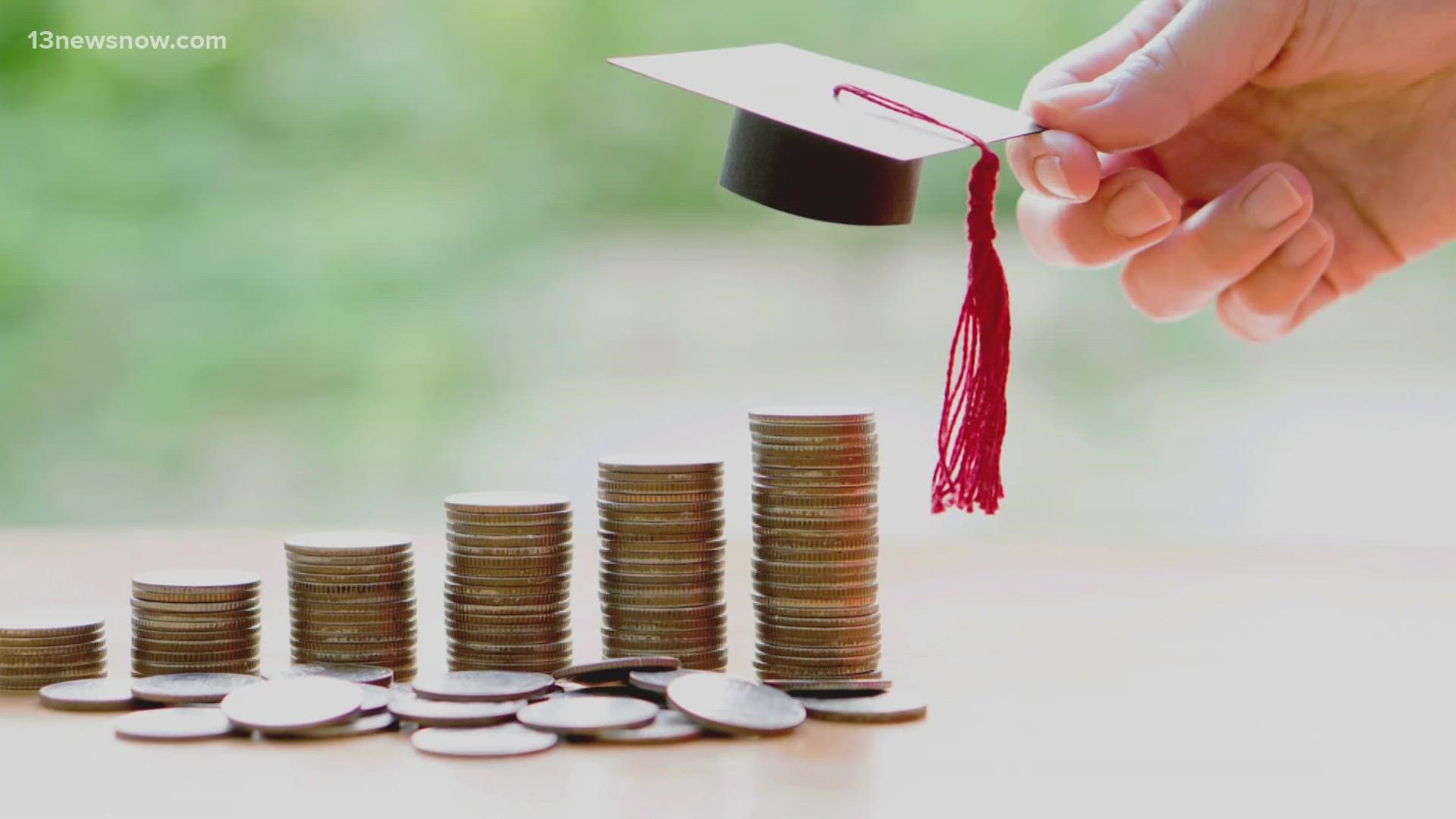RICHMOND, Va. — At 61 years old, Lori Scott plans to retire by 2024, taking with her nearly three decades of memories from her career in special education. But she said there's one thing she didn't plan on taking into retirement-- student loan debt.
"By the time I retire, it will be over $60,000," Scott said. "And... when I got the student loans, it was only around maybe 20 [thousand]."
The debt increase came after going into default at times and accruing interest over 30 years.
"Penalties, you know, because of times, financial times, I haven't been able to, you know, keep up with the payments." Scott said. "So, I'm fearful, you, know, that it will last... it's [going to] last my lifetime, [be]cause I don't think I'll ever be able to pay that money off."
And she's not alone. The U.S. Department of Education reports that roughly 2.4 million Americans ages 62 and older carry an average of $40,750 in college debt. By comparison, 25-to-34-year-olds owe $33,570.47 on average.
"It's probably one of two sources, or maybe a combination of both," said Virginia's Student Loan Advocate Scott Kemp.
"One, either at some point in their career, they went back and got graduate degrees... but it also may be they have parent loans, parent plus loans. So, they've gotten them for their kids, and even in a few situations, for their grandkids... And, you know, the standard repayment plan is ten years, so that kind of stretches it out much longer."
While these baby boomers only account for about 5% of student loan borrowers in the U.S., the group carries a substantial amount of loan debt.
"The federal government is very persistent with their loans," Kemp said. "You know, they have the ability to garnish wages, to take tax refunds."
Kemp said this could especially pose a problem for retirees on fixed incomes.
"When they look at the amount that they have to pay each month and the amount that they have left... You know, I have some borrowers who are looking at the prospect of not being able to pay off their loans at all," he explained.
Kemp said this should serve as a message to students entering college soon to consider less-expensive options, like community colleges, or to be responsible when taking out student loans.
"When you get your financial aid letter... the amount that you're eligible to borrow is based on the cost of attendance, which is a calculation that the college comes up with. But it doesn't necessarily mean you have to take out that full amount," he said.
"Because when you look at the amount that that extra thousand or two thousand that they take out... the interest that compounds over time and, you know, it may be better to scrimp and save here and there... and try to pay as much as you can up front before you get to that."
It's a lesson Scott said she wants to share with her grandchildren and students.
"You're [going to] have to pay that money back," Scott said. "That 2, 3,000 dollars extra that they send you in a check and say, 'Oh, this [is] your refund check. This [is] what you had left over'-- it's a loan. It's a loan. You're [going to] have to pay it back."
The State Council of Higher Education for Virginia offers online education courses and resources for student loan borrowers.
If you're worried about your ability to repay your loans when the federal pause ends, Kemp recommends contacting your loans servicer. You can negotiate an income-driven repayment plan or ask about other options to make repayment more manageable.

